Take all things into account when describing a scene so that the facial expression, body language, and context all match the situation and reactions that you, as the writer, intend it to mean. Never assume readers will know what you mean. They don't know what the author is thinking.
CONFIDENCE / PRIDE
Confidence and Pride may seem like the same emotion, and at times they may be, but there are differences.
● Pride refers to the satisfaction that an individual gains of his abilities, achievements, qualities, and possessions. Pride makes a person feel good about himself.
● A proud person is not humble whereas a confident person is.
● A proud person believes that he is capable of anything, but a confident person is aware of his flaws. differencebetween.com/pride-and-vs-confidence.
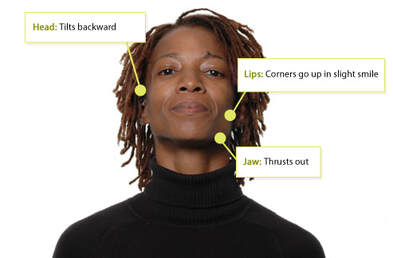
Facial Expression
●The corners of the lips rise slightly, signaling the person is happy.
● The difference between pride and happiness is the backward tilt of the head and a minor thrust of the jaw, classic signs of power and dominance, giving feeling of strength.
● A slight smile.
| Other Physical Behavior ● Using slow exaggerated movements to draw attention to oneself ● A booming laugh ● Speaking boisterously, enthusiastically ● Walking with a swagger, sauntering ● Running hands through hair, flipping hair ● Assuming a pose that's sexy, appealing, or draws attention to one's best attributes ● Wearing clothes that are flashy or dramatic | Other Physical Behavior ● Smiling, a knowing or playful grin ● Winking or giving someone an easy nod easy nod ● Bragging, obsessively talking about an achi ● Bragging, obsessively talking about an achievement or material object (winning a game, a new car, etc), showing off ● Reacting with anger or jealousy if reputation is impugned |
| CONFIDENCE There are a few subtle differences between pride and confidence. People with self-confidence are usually proud of their accomplishments without being “prideful” and, to use the scientific term, “stuck up.” Confidence refers to the trust someone has about something. A significant difference between the Pride and Confidence stems from the quality of humility. A person, who is proud or full of pride, is not humble. However, a person, who is confident, is humble. He takes the advices and the feelings of others into consideration. Facial Expression ● Chin lifted but relaxed ●·Eyes look directly into another’s eyes ● Pleasant smile Other Physical Behavior ●·Shoulders back, chest out ● Comfortable being in close proximity to others or initiating contact | Other Physical Behavior ● Telling jokes, adding to and/or steering a conversation ● Hosting an event or activity; inviting others to be with you ● Discrete about doing or saying things outside of the norm but takes smart risks and speaks out honestly with the truth without anxiety or concern ● Leaning in to talk or listen ● Good eye contact ● Generally positive and enthusiastic · A gleam in one’s eye, an inner light ● Appearing relaxed, at ease ● Controls emotional reactions; thinks things through ● Open stance dealing with peoplel ● Clarifies to assure understanding |
CONFUSION
Confusion represents a lack of understanding, and the expression itself is created by one increasing their efforts to understand something.
| Facial Expression ● The nose and forehead scrunched up ● Brows drawn together; Sometimes with one eyebrow raised higher than the other ● Lips are typically pursed together ● Nose wrinkled ● Lines forming between the eyebrows ● Head tilting to the side ● Eyes narrowing ● Gaze clouded, distant; slack expression ● Biting lip ● Hands touching lips, mouth, face |
| Other Physical Behavior ●·Glance darting around, head turning, as if looking for answers ● Mind churning, working rapidly ● Mind freezing, unable to work ● Wandering a short distance before returning ● Moving blindly, mind on other things ● A slight shake of the head ● Repeating a question, responses ● Opening mouth but not speaking ● Using ‘word filler’ to stall for time (“Well…” or “Hold it a sec…” etc) ● Swallowing excessively ● Pinching the bridge of the nose, closing eyes | Other Physical Behavior ● Wilting posture ● Taking extra time to react (slowly finding a seat, distractedly reaching out for something or responding to stimulus—doorbell, ringing phone) ● Pacing ● Staring down at the ground or hands in lap ● Scratching at cheek, rubbing chin ● Asking for affirmation: “Are you sure?” ● Tapping fist against lips lightly while thinking ● Denial, shaking head, repeating “No”, warding someone off from speech or coming closer ● Taking a deep breath and puffing cheeks while letting it out again slowly |
CONTENTMENT
Most of us often consider happiness and contentment as synonymous, this is inaccurate. Happiness refers to a state of being happy or feeling pleasure and is usually short term.On the other hand, contentment is generally defined as a longer lasting state of being and a deeper feeling of satisfaction and gratitude. The emotional state viewed by many to have a long-lasting effect on those that experience it and a calmness which is stable.
| Other Physical Behavior ● Relaxed posture, slack limbs ● Slow easy breathing, A satisfied sigh ● Fingers loosely clasped together or behind head ● Being with others and with no need to fill silence with words ● An urge to sit back and soak in the sounds and sight around you ● Having no desire to be anywhere else | Other Physical Behavior ● Pleasant demeanor to others ● Leaning back, an arm hooked over the back of a chair ● Enjoying listening to others ● An unforced laugh or grin ● Relaxing or displaying interest and enjoyment of a venue ● Catlike stretching ● A warm voice, caring tone ● A wide stance, open demeanor |
CONTEMPT
Contempt is when you look down on someone derisively or suspiciously, or have total lack of respect.
The first kind of contempt is where one person is upset with another individual and has reached the breaking point. This actually an extreme form of anger. The second kind of contempt is when one person feels superior to the other person.
thetrustambassador.com/76-contempt Image Source: entusiastiq.blogspot.com/facial-expressions
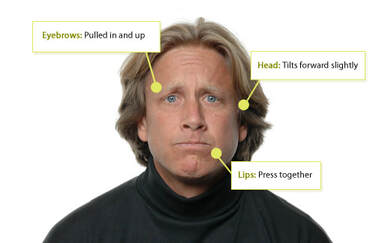
● Corrugators muscles pull eyebrows in and up
● Lips pressed together in neutral expression or slightly down; lips pulled down usually means sadness, not compassion
● Head slight forward; sign of social engagement
● Soft eye contact, with the intention of
really seeing the speaker
| Facial Expression ● Raised eyebrow, wide eyes, intense stare at person speaking, display, or item of interest ● Cocked or tilted head, a slow nod ● A small delighted smile, Lips parting slightly ● Focused eyes; alert ● Lips parted slightly Other Physical Behavior ● Repeating a statement as a question ● Leaning in, sliding a chair closer, edging in ● A shift from mediocre to pointed questions ● A softened voice or tone ● Prying or snooping ● Straining to hear, shushing others |
| ● Pushing one’s glasses up and tilting the body toward the object of curiosity ● A gasp of wonder and/or surprise | Other Physical Behavior ● Slowed breaths ● Crossing arms & observing ● Stillness |
| DESPERATION Extreme desperation is the feeling you have little or no hope and are ready to do almost anything without worrying about the consequences to yourself or others. Whether you are talking about real life or writing characters in a novel, you can expect your subject will act out of character. With judgment and smart decision making hampered by emotion, they can be rash and make impaired decisions. Rules be damned and don’t get in my way. Just as with other emotions, there are varying degrees from mild to extreme, depending on the stakes at risk. | Other Physical Behavior ● Wrap upper arms around self for comfort ● Wrap upper arms around self for comfort |
| Facial Expression ● Raised chin and compressed lips ● Furrowed brow ● Sides of mouth pulled back ● Hands to head | ●·Hugging shoulders, chin tight to chest ●·A disregard for another's feelings/needs if they conflict with one's own goal ● Sarcastic or cynical remark, with sarcastic smile |
| DEFENSIVE | |
| Facial Expression ● Squinting eyes ● Lowered, angry brows ● Teeth grinding ● Cheeks sucked in ● Nostrils flaring ● Raised chin ● Eye rolling ● Lips tightly pursed ● Surprised, innocent expression Other Physical Behavior ● Hands on hips, arms crossed ● Rigid body ● Shaking the head ● Flinching, jerking back ● Breathing heavily ● Deflecting blame ● Sputtering, raised voice ● Interrupting the offender ● Storming away ● Sarcasm, Shouting, shaking voice ● Raised blood pressure, red in the face | Other Physical Behavior ● Continuing with mundane activities, as if the claim isn't worth acknowledging ● Flipping hair in annoyance ● Blowing out a noisy breath ● Going on the offensive and verbally attacking the accuser ● Stuttering, difficulty being articulate ● Hand splayed across chest, mouth gaping ● Stiff neck, cords standing out ● Sweating ● Lip-licking, excessive saliva ● Jerky movements, loss of fluidity to actions ● Excessive swallowing ● Pleading as if in danger or fearful ● Tears ● Leaning away from the offender ● Short snort of dismissive laughter ● Hands up, palms out, to ward off a blow ● Impatient gestures (foot tapping, etc.) ● Looking to others for back-up |
DESIRE Image Source: entusiastiq.blogspot.com/facial-expressions
| Other Physical Behavior ● Pressing hands to side of the head, or weaving hands into hair and pulling down ● Fist pressing to lips ● Avoiding other peoples' eyes, going stone-faced ● Wincing, pained expression ● Looking up with hands raised / ‘why me?’ ● Collapsing into a chair, bench ● Weaving slightly, stumbling mid-stride ● Sagging against a door/wall, reaching out to something to steady self ● Pressing hands to side of the head ● Fist pressing to lips | Other Physical Behavior ● Avoiding eyes contact; going stone-faced ● Wincing, pained expression ● Looking around in confusion ● Attempting to hide / assume fetal position ● Hands fiddling with things ● A slow nod while frowning ● A heavy sigh ● Rubbing at back of the neck ● Voice dropping or going quiet ● Voice rising in anger ● Denial (shaking head, whispering ‘no’ ● Heart sinking ● Onset of anger or violence |
Disinterest is very close to boredom and the opposite of being keenly interested in something.
| Facial Expression ● Eyes turned away, rolling eyes ● Hands to the face ● Lips straight and slightly compressed ● Also lips quirked to one side and eyes narrowed ● Eyebrows raised ● Head tilted, often supported by hand(s), ● Turned down mouth ● Eyes unfocused or glazed looking | Other Physical Behavior ● Slumping shoulders ● Slouching ● Finger in the nose ● Hands in lap ● General fidgeting ● Repetitive motion like swinging one foot or rubbing the shin ●Yawning |
DISTRUST
| Facial Expression ● A curling lip or tightened lips ● Eyes appear cold, dead, flat ● Narrowing eyes ● Averting eyes from subject ● Wrinkling up face or nose ● A pale cast to one’s face, a pallor over their features | Other Physical Behavior ● Sneering ● Flinching away, recoiling ● Bringing a hand up to cover one’s mouth ● Refusing to look at someone ● Shaking head, muttering ● Looking or walking away/ gain composure ●· Spitting on ground or in direction of others ● Putting hand up, backing away ● Slowly repeating what someone has said, purposely devoid of all emotion ● Pulling away from contact ● Pressing hand to stomach ● A feeling of nausea, heaving stomach ● Demanding another to stop speaking or desist what they are doing ● Feeling dirty, oily, soiled, just by be being in the presence of one who causes disgust ● Using a purse, jacket, etc to create a ‘shield’ between self and cause of discomfort ● A desire to flee ● Avoiding touches, brushes, stepping back to stay beyond the other person’s reach ● Shunning, evasive answers ● Excessive saliva, having to swallow ● A choking or uncomfortable swallow ● To curl away from another if lying prone |
DOUBT
| ● Backing away or lingering at the edge of a group or event ● Running hands through the hair ● Checking/rechecking appearance ● Nervous or impatient gestures such as pulling or tugging at clothes, tapping fingers ● Cold hands ● A hesitating nod ● Licking lips/wetting lips or other nervous habit ● Slightly clenched fists ● Making excuses for not agreeing quickly or to reassure ● Making alterative suggestions ● Rubbing the back of the neck ● Fiddling with hands, watch or jewelry | Other Physical Behavior ● A heavy, weighted sigh ● A shrug ●Avoiding speaking or agreeing; arguing ●Wincing as others agree or commend someone for their solution ● Rubbing the back of the neck ● Fiddling with hands; a watch or other jewelry ● Shaking the head ● Coughing as one agrees or supports a doubtful decision or stance ● A sharp or exaggerated intake of breath ●Avoiding speaking or agreeing; arguing ●Wincing as others agree or commend someone for their solution |
ELATION
| Facial Expression ● Mouth open ● Bright smile; teeth showing ● Head up or tilted back ● Eyes closed or squinted Other Physical Behavior ● Hands up ● Jumping up and down ● Shouts or cries of joy ● Exuberant-like body language ● Energetic movements ; arms, hands ● Whooping, smiling, cheering, shouting ● Pumping a fist in the air ● Greeting with gusto; shaking hands firmly ● Squeezing the arm; a friendly shake |
| Embarrassment is an emotion which strikes quickly and automatically in a manner that people cannot control, but it lasts only a short time. Embarrassment most often occurs when an error or gaff, a socially unacceptable or frowned upon act is committed and witnessed before others or is revealed to others. The emotion, unlike others, because it has unique antecedents and physiological effects, it elicits singular feelings and behaviors, and it has particular effects on people’s interactions with others. | Other Physical Behavior ● Looking shamefaced, sheepish ● Nervous repetitive movements ● Clearing the throat; coughing ● Covering oneself: crossing arms, closing jacket ● Wincing, ducking head ● Stuttering, stammering ● speechlessness ● Shoulders slumping, slouching, sagging, hunching ● Desire to run away (fight or flight) ● Glancing about as if for an exit or escape ● Deflecting attention/assigning blame to another ● Angry or knee-jerk type reactions: lashing out, taking a cheap shot; defensive reaction ● Shoving hands in pockets ● Hiding behind a book ● Death grip on backpack straps, school books pressed to chest ● Rapid walking with head down to get away ● Excessive swallowing ● muddied or panicked thoughts ● Lightheadedness, tingling in chest/stomach ● Attempting to be invisible |
ENERGETIC / ENTHUSIASTIC
| Mirrors Elated expressions and actions but, in a more formal setting such as at work, probably more subdued and usually longer-term than Elated. Facial Expression ● Mouth open; raised chin ● Bright wile smile; teeth showing ● Head up or tilted back ● Eyes closed, squinted, good eye contact ● Color in cheeks |
| Other Physical Behavior ● Hands up ● Jumping up and down ● Shouts or cries of joy ● Exuberant-like body language ● Energetic movements; arms and hands ● Whooping, smiling, cheering, shouting ● Pumping a fist in the air ● Greeting with gusto ● Squeezing the arm; friendly shake of shoulders ● Alert ● Excited; Twitchy ● Super-observant; Sharpened senses ●Tingly extremities ● Bouncing on the balls of the feet ● Buoyant voice ● Pacing ● Erect posture; Shoulders back strong decision-making ● High-fiving, bumping shoulders, etc. ● Speed-talking; bubbly or loud tone ● Deep/genuine laughter | Other Physical Behavior ● Restless movements such as swinging or tapping foot ● Eagerness to do whatever needs to be done ● The feeling that you can do anything ● Lighthearted, like your problems are no longer significant ● Increased and louder heartbeat ● A gaze that flits from person to person or sweeps across a room, picking up all details Tapping fingers against the leg ● Nodding along as someone speaks ● Cutting in, speaking over people ● Defusing/refuting the excuses of others, refusing to be deterred or delayed ●Taking in deep cleansing breaths ● A bright, positive outlook ● Belief in oneself ● Encourages others ● Displays confidence and determination ● Easy to pump up, like with music |
EXHAUSTED / FATIGUED
| Facial Expression ● Downward gaze ● Closed Eyes or half lidded eyes ● Rubbing at eyes; difficulty keeping them open ● Red or tearing eyes; drifting focus ● Squeezing eyes shut hard and then opening them wide in a bid to keep focused ● Vacant stare ● Dark circles under eyes ● Yawning ● Head nodding forward toward chest | Other Physical Behavior ● Propping up head in some way ● Slouching, bad posture; bowed shoulders ● Slow or slurred speech; mumbling, one word answers ● A weighted sigh ● Loose movements ● Rubbing temples or face ● Fumbling, clumsiness, shakiness ● Heavy limbs; numbness ● Shuffling or steps that scuff the floor ● Scrubbing a hand through the hair ● Drinking coffee non-stop ● Leaning against a chair, a wall, etc. ● Rolling the neck side to side ● Opening windows for fresh air (car) ● Turning up a radio or TV for noise ● Pinching the bridge of the nose ● Stretching, shaking limbs; blood flow ●Taking an opportunity to sit when possible ● Swaying on feet ● Silence; Zoning out ● Tipping head back on neck ● Rereading the same page ● Asking someone to repeat themselves ● Listening but not hearing ● Slowed reaction time ● Impaired judgement ● Stiff, weary muscles ● Dry mouth or a bad taste in the mouth |
COMPLETE SOURCES LISTED IN PART 1
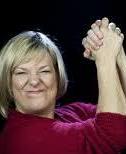

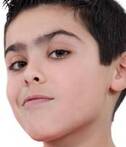
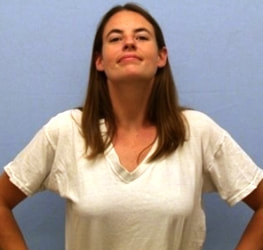
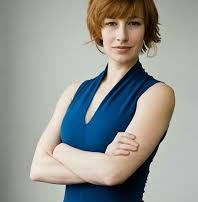


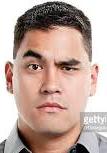

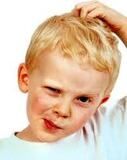
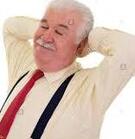

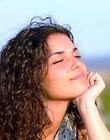
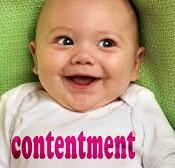
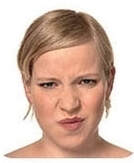

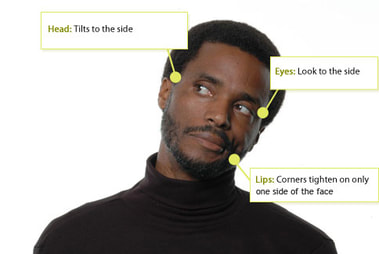
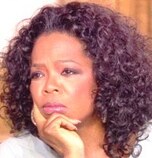



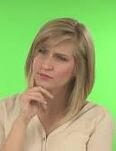
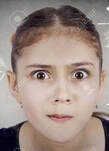


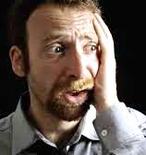
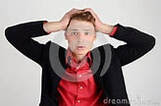
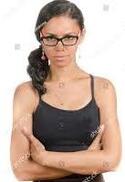

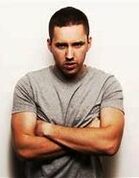
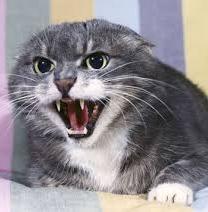

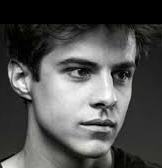
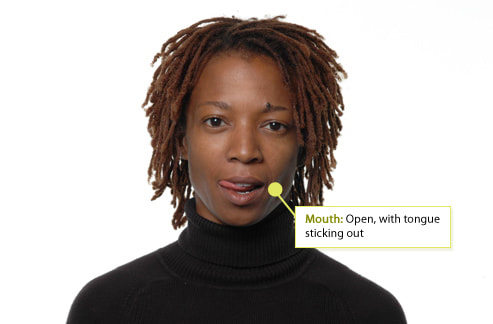

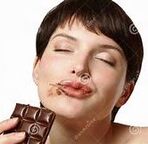
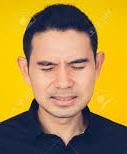
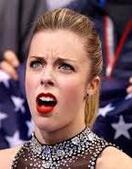
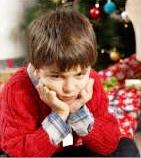
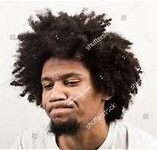
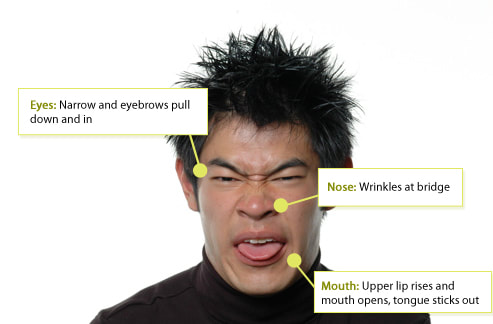
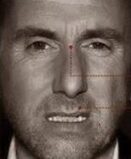
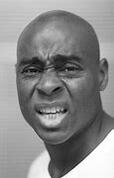
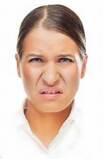
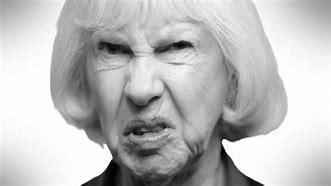

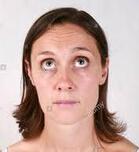
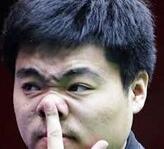


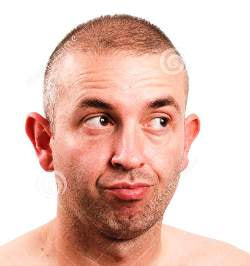

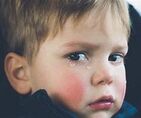
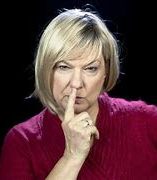

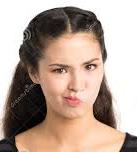
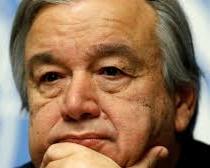


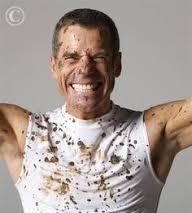
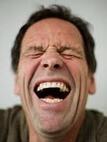
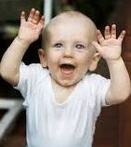
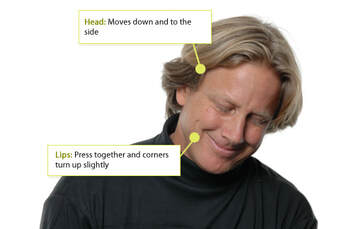
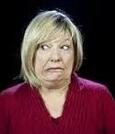
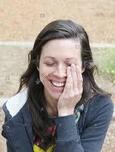
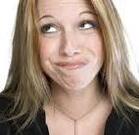
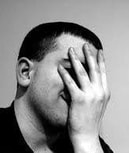



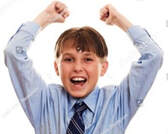
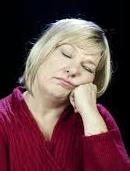

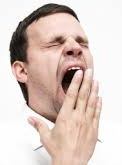
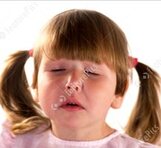
 RSS Feed
RSS Feed